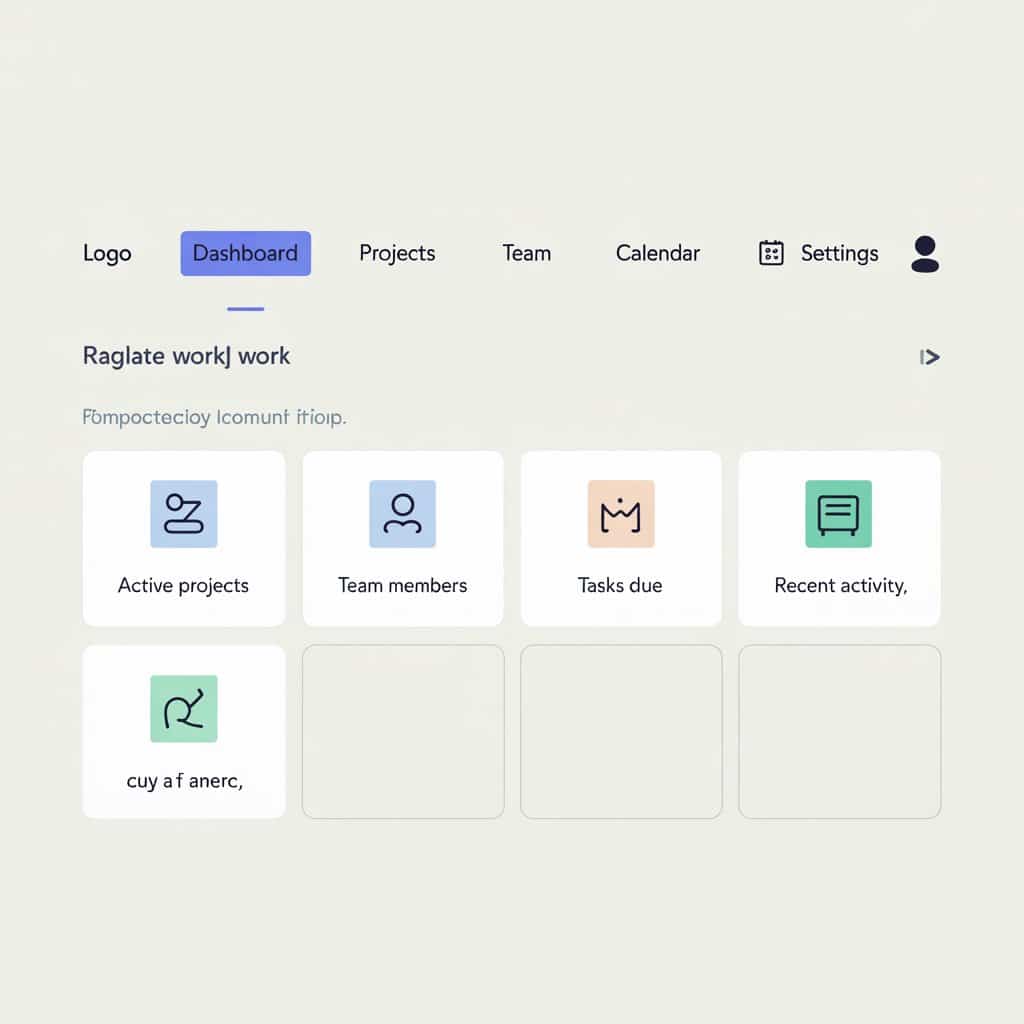
Complete Guide to Digital Transformation for Businesses in 2025
In today’s rapidly evolving marketplace, digital transformation for businesses has become more than just a buzzword—it’s a fundamental driver of success. From small startups to global enterprises, companies worldwide are adopting digital-first strategies to stay competitive, serve customers better, and build resilience against disruptions.
But what exactly does digital transformation mean, why is it essential for business survival, and how can companies implement it successfully? This comprehensive guide answers all these questions while providing insights into benefits, challenges, strategies, and real-world examples of digital transformation.
What is Digital Transformation for Businesses?
At its core, business digital transformation is the process of integrating digital technologies into every aspect of an organization. It’s not just about adopting new software—it’s about rethinking how your business operates, engages with customers, and generates value.
Digital transformation impacts:
In essence, digital transformation is about aligning technology with business goals to achieve long-term growth and adaptability.
Why Digital Transformation Matters in 2025

With rapid technological advancement, digital strategy for companies is no longer optional—it’s mandatory. Businesses that fail to transform risk losing customers, market share, and relevance.
Here’s why digital transformation is so important in 2025:
Benefits of Digital Transformation for Businesses
Automation tools reduce manual errors, accelerate processes, and free employees to focus on strategic initiatives.
Digital platforms provide personalized recommendations, 24/7 support, and seamless purchasing experiences, boosting customer satisfaction.
Analytics and AI allow businesses to predict trends, optimize pricing, and understand customer behavior.
Moving to cloud solutions reduces infrastructure costs, while automation lowers labor-intensive expenses.
Digital skills training, remote work tools, and modern collaboration platforms boost employee morale and productivity.
Digital Transformation Trends in 2025
As industries move deeper into the digital age, the digital transformation trends in 2025 are reshaping how companies operate, compete, and serve customers. These trends are not just technology upgrades—they represent a fundamental shift in business models, culture, and customer expectations.
Let’s explore the seven most influential digital transformation trends driving business innovation in 2025:
Artificial Intelligence (AI) has moved from being a support tool to becoming a core business driver.
- Predictive Analytics: AI algorithms help companies forecast demand, anticipate customer behavior, and optimize supply chains.
- Customer Engagement: Chatbots and virtual assistants provide 24/7 support, personalized recommendations, and faster resolutions.
- Operational Efficiency: AI-driven automation reduces costs, minimizes errors, and speeds up processes.
Example: Retailers like Amazon use AI to personalize product suggestions, while banks deploy AI for fraud detection and smarter risk management.
In 2025, businesses are embracing a cloud-first mindset to ensure scalability, flexibility, and resilience.
- Scalability: Cloud platforms allow companies to grow operations without heavy infrastructure investments.
- Hybrid Models: Many companies prefer a hybrid approach, balancing public cloud for cost savings and private cloud for data security.
- Disaster Recovery: Cloud ensures secure backups and fast recovery during system failures.
Example: Healthcare providers use cloud platforms for real-time patient record access, enabling faster diagnoses and better care.


Repetitive, manual tasks are being replaced by hyperautomation and RPA, making organizations faster and more cost-effective.
- Efficiency Boost: Automating data entry, invoice processing, and compliance reporting saves time.
- End-to-End Automation: Hyperautomation integrates AI, RPA, and machine learning to streamline complex processes.
- Cost Reduction: Companies significantly cut operational expenses by reducing human error.
Example: Insurance companies use RPA to speed up claim processing, cutting waiting times from weeks to just hours.
As businesses go digital, cybersecurity becomes a top priority. The zero-trust model assumes no one—inside or outside the network—can be trusted without verification.
- Data Protection: Advanced encryption and multi-factor authentication safeguard sensitive data.
- Compliance: Businesses comply with stricter data protection regulations (like GDPR).
- Proactive Defense: AI-driven security systems predict and block threats before they occur.
Example: Financial institutions implement zero-trust to secure transactions and prevent cyber fraud.


The pandemic made remote work mainstream, and in 2025, it continues to evolve into hybrid workplace models.
- Collaboration Tools: Platforms like Slack, Microsoft Teams, and Zoom support communication, file sharing, and project management.
- Global Talent Access: Companies can hire talent from anywhere, breaking geographical barriers.
- Employee Productivity: AI-powered collaboration tools track productivity and streamline workflows.
Example: Tech companies run entire product development cycles virtually, with teams spread across multiple continents.
IoT connects devices, machinery, and systems, enabling businesses to collect and analyze real-time data.
- Manufacturing: IoT sensors predict machine failures and enable proactive maintenance.
- Healthcare: Wearable devices track patient health remotely, improving medical outcomes.
- Logistics: Smart trackers optimize delivery routes, reduce costs, and improve efficiency.
Example: Automotive companies use IoT to develop connected cars that provide navigation, predictive maintenance alerts, and safety features.


Challenges in Digital Transformation
While transformation offers benefits, companies face challenges in digital transformation, including:
- Employee Resistance to Change
Many employees fear job loss or struggle to adopt new tools. - High Investment Costs
Digital adoption requires initial capital for infrastructure, tools, and training. - Integration with Legacy Systems
Older systems often don’t integrate easily with new technologies. - Cybersecurity Risks
Greater connectivity increases vulnerability to cyberattacks. - Digital Skills Gap
Many companies lack digitally skilled professionals to lead transformation. - Unclear Strategy
Without a defined roadmap, businesses risk fragmented efforts and wasted resources.
The Future of Business Transformation in 2025 and Beyond
As we look ahead, the future of business transformation will be shaped by emerging technologies, customer-centric innovation, and sustainable practices. The pace of change is accelerating, and businesses must embrace forward-looking strategies to remain relevant. Below are the key forces redefining the future:
1. Artificial Intelligence as Decision-Making Partners
Artificial Intelligence (AI) is moving beyond automation into strategic business intelligence. In the near future, AI will serve as a decision-making partner, providing real-time insights, scenario predictions, and actionable recommendations.
- Business Impact: From inventory management to financial forecasting, AI tools will help executives make smarter decisions faster.
- Customer Experience: AI chatbots will evolve into virtual assistants that understand context, emotions, and complex customer needs.
- Example: Retail giants already use AI to predict demand trends and optimize pricing dynamically—this will become a standard practice across industries.
2. Blockchain Revolutionizing Transparency and Trust
Blockchain technology, best known for powering cryptocurrencies, is transforming industries by enhancing security, transparency, and trust. Its decentralized nature eliminates intermediaries and ensures tamper-proof transactions.
- Business Impact: Supply chains will use blockchain to ensure product authenticity, reduce fraud, and improve traceability.
- Customer Experience: Consumers will gain confidence knowing products and services are verified and ethically sourced.
- Example: In food and pharmaceutical industries, blockchain is being used to track goods from production to delivery, ensuring safety and compliance.
3. Metaverse and AR/VR Changing Customer Experiences
The metaverse, augmented reality (AR), and virtual reality (VR) are opening new frontiers in customer engagement. These technologies will transform how businesses market, sell, and interact with clients.
- Business Impact: Companies will create virtual showrooms, immersive training environments, and interactive brand experiences.
- Customer Experience: Customers can virtually “try before they buy,” attend digital events, or engage with brands in immersive 3D spaces.
- Example: Real estate firms already use VR tours for property viewings, and fashion brands are enabling virtual clothing trials through AR.
4. Sustainable Technology Driving Eco-Friendly Businesses
Sustainability is becoming a core component of digital transformation for businesses. Organizations that prioritize eco-friendly technology will not only meet regulatory demands but also earn customer loyalty.
- Business Impact: Green IT practices like energy-efficient data centers, paperless operations, and renewable energy adoption will lower costs and carbon footprints.
- Customer Experience: Eco-conscious consumers prefer brands that demonstrate genuine environmental responsibility.
- Example: Tech giants are investing heavily in carbon-neutral operations, setting the benchmark for other industries.
5. 5G Enabling Real-Time Connectivity Across Industries
The rollout of 5G technology will revolutionize connectivity, enabling real-time collaboration, faster data transfer, and smarter IoT ecosystems.
- Business Impact: Industries such as healthcare, manufacturing, and logistics will see instant communication and automated operations.
- Customer Experience: Customers will benefit from faster mobile apps, smoother digital services, and enhanced digital experiences.
- Example: In smart cities, 5G will power connected vehicles, real-time traffic monitoring, and intelligent public services.
Final Outlook: Adapt or Risk Extinction
The future of business transformation is about continuous innovation. Businesses that embrace AI, blockchain, immersive technologies, sustainability, and next-generation connectivity will set themselves apart as industry leaders. Those who resist these changes may struggle to compete, lose customer trust, and eventually face extinction.
In 2025 and beyond, success will belong to companies that view digital transformation not as a one-time initiative but as a long-term journey of adaptation, innovation, and resilience.
Frequently Asked Questions (FAQs) on Digital Transformation
Conclusion
Digital transformation for businesses is not a one-time project—it’s a journey of continuous innovation. In 2025, success depends on how quickly companies adapt to digital-first models, embrace automation, and prioritize customer-centric strategies.
Whether you’re a startup or a global enterprise, investing in a digital strategy for companies ensures you remain competitive, resilient, and future-ready.
Take Action Today: Begin by assessing your current systems, identifying gaps, and developing a clear roadmap for transformation. Start small, measure results, and scale gradually to achieve long-term success.


